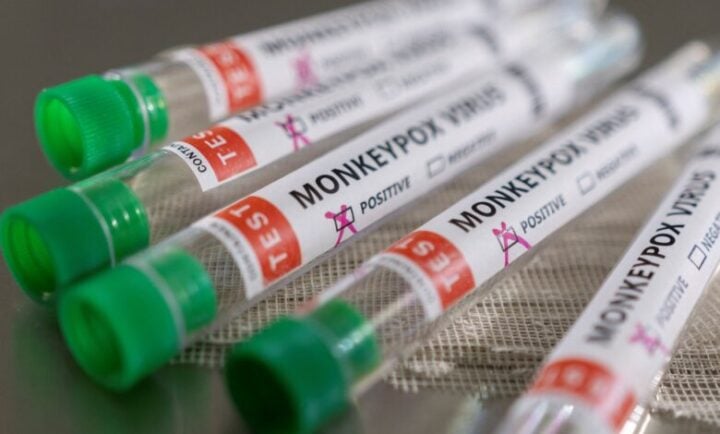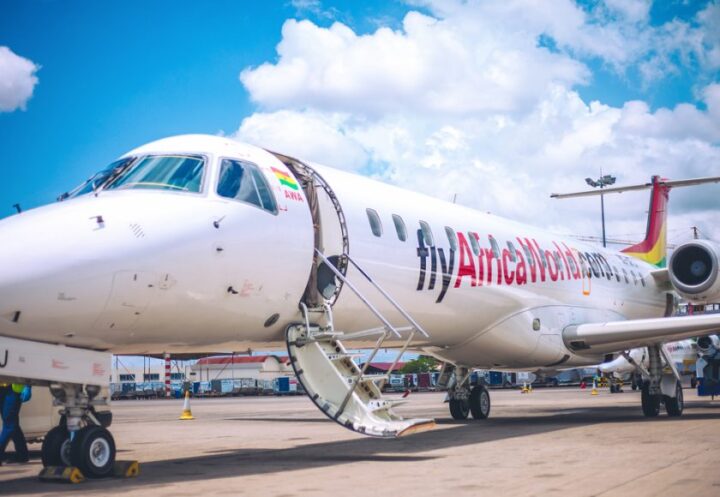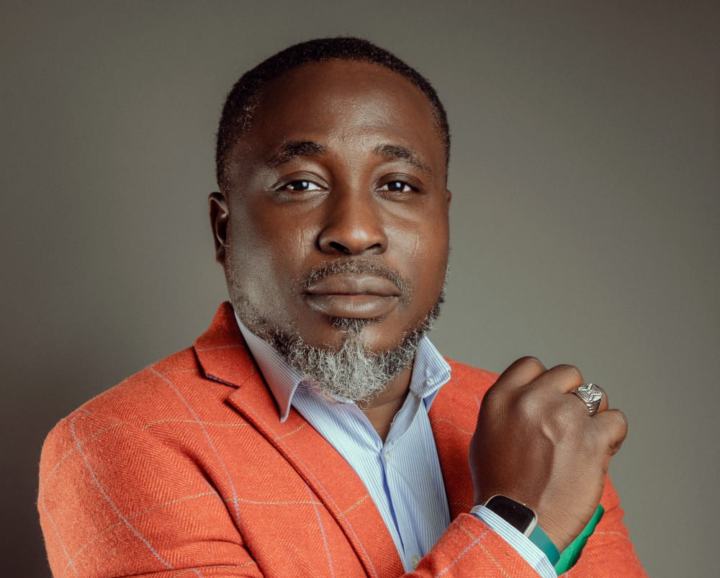Test tubes labelled "Monkeypox virus positive" are seen in this illustration taken May 22, 2022. REUTERS/Dado Ruvic/Illustration
Earlier in 2022, several countries, including the United States, United Kingdom, Spain, Italy, Portugal, and Canada, began reporting monkeypox cases.
This has been particularly worrisome as monkeypox had never been reported in some of these countries, although monkeypox is endemic (regularly found) in Benin, Cameroon, the Central African Republic, the Democratic Republic of the Congo, Gabon, Ghana (identified in animals only), Côte d’Ivoire, Liberia, Nigeria, and Sierra Leone.
Meanwhile, as the cases spread, the World Health Organisation (WHO) declared the outbreak a global health emergency.
Monkeypox is a virus that originates from wild animals like rodents and is transmitted to humans with symptoms very similar to those seen in the past in smallpox patients, although it is clinically less severe.
Advertisement
Animal-to-human transmission can occur from direct contact with the blood, bodily fluids, or mucosal lesions of infected animals. It can also spread from human to human from close contact with respiratory secretions, skin lesions of an infected person, or recently contaminated objects.
According to the WHO, since the start of the current outbreak, there have been over 41,000 cases and 12 deaths in 96 countries.
WHAT’S THE CURRENT SITUATION OF MONKEYPOX IN NIGERIA?
Nigeria has recorded 440 cases of the monkeypox virus in Nigeria since 2017 when it broke out in the country.
Advertisement
According to data by Nigeria Centre for Disease Control (NCDC), there have been 220 cases of monkeypox in Nigeria in 2022, with four deaths. The majority of cases have been in Lagos, Ondo and Rivers states.
Also, some states, including Ondo and Adamawa that had previously never recorded cases, have done so this year.
The NCDC has said it has engaged community and LGA surveillance officers to support state and LGA teams. The agency also said it has also deployed trained healthcare workers in selected states on monkeypox surveillance and management.
SHOULD MONKEYPOX BE A CONCERN IN NIGERIA?
Advertisement
With the number of cases being recorded, there is a likelihood that more cases may go undetected, considering that samples have to be transported from other states to the National Reference Laboratory (NRL) in Abuja for testing.
Ifedayo Adetifa, director-general of NCDC, maintains that the agency has always treated the disease as a priority.
“Since monkeypox re-emerged in 2017 in Nigeria, it has been and remains a priority disease and concern for the NCDC and the FMoH regardless of whether it is in the headlines or not,” he told TheCable.
On his part, Oyewole Tomori, a professor of virology, said the current figures are an understatement of the true situation of monkeypox in Nigeria.
Advertisement
“A neglected disease, anywhere, will spread everywhere. Not responding adequately, efficiently and timely, may turn monkeypox into another national emergency, if not so already,” he said.
IS THERE MONKEYPOX VACCINE?
Advertisement
Well, yes and no. The vaccine currently used for monkeypox was originally for smallpox. Both viruses belong to the genus of Orthopoxvirus, and research conducted by scientists found that the vaccines licensed to prevent smallpox are about 85 percent effective in preventing monkeypox, when properly administered.
In 2019, the WHO approved a newer vaccine, the Imvanex vaccine also referred to as JYNNEOS, for monkeypox in addition to smallpox. The vaccine, which is produced only by Denmark-based Bavarian Nordic, is what is currently used by countries.
Advertisement
The WHO does not recommend mass vaccination against monkeypox, and according to the organisation, decisions on use of smallpox or monkeypox vaccines should be based on a full assessment of risks and benefits on a case-by-case basis.
IS COVID VACCINE INEQUITY REPEATING ITSELF?
Advertisement
As monkeypox cases continue to rise, governments of wealthy nations have procured thousands of the vaccine.
One concern of the WHO about COVID was the inequitable access to vaccines. When the vaccines became available, many countries in Africa received doses later on.
It appears this inequity may repeat itself because although monkeypox had been endemic in several African countries, with the rush by wealthier countries to get vaccines which are already limited in supply, chances seem to get slimmer for African countries like Nigeria.
SHOULD NIGERIA BE CLAMOURING FOR VACCINE?
According to Tomori, Nigeria should not scramble for vaccines because there is gross scarcity and countries that have it are unable to meet demands.
“It will be a replay of COVID-19 vaccine scene, and we will beg and beg and receive nothing. We should stop depending on the crumbs of equity,” he said.
The professor added that rather than focus on vaccines, Nigeria can improve on controlling spread by “increasing awareness about the disease, educating the community on suspected reservoirs, mode of transmission and prevention, improving and upscaling surveillance with efficient diagnostic laboratory support, and prompt isolation of suspected cases and institution of infection prevention and control”.
“Monkeypox is a relatively mild and self-limiting disease and if properly managed, will not turn out to be a major emergency,” he added.
IF NEEDED, HOW SOON CAN NIGERIA GET THE VACCINE?
Although the WHO has not recommended widespread vaccination, it does recommend use for close contacts of cases, people at high-risk of exposure like health workers, and people at risk of severe disease.
On when Nigeria can get the vaccine, Adetifa, while highlighting its scarcity, said the NCDC’s priority at the moment is to obtain therapeutic options to offer those at high risk of severe disease, hospitalisation and death.
“However, in addition, we have reached out to relevant partners and the World Health Organisation to explore gaining access to vaccines,” he added.
Also, speaking at a ministerial press briefing in Abuja, Adetifa said the vaccine may not be available till 2023.
“As we know the situation with monkeypox vaccine access is very topical, but there are not enough doses of vaccines. Potentially, a lot more doses will become available but because of challenges with manufacturing factories and unexpected uptick in monkeypox cases, the vaccine may actually not be available until 2023,” he said.
Add a comment






